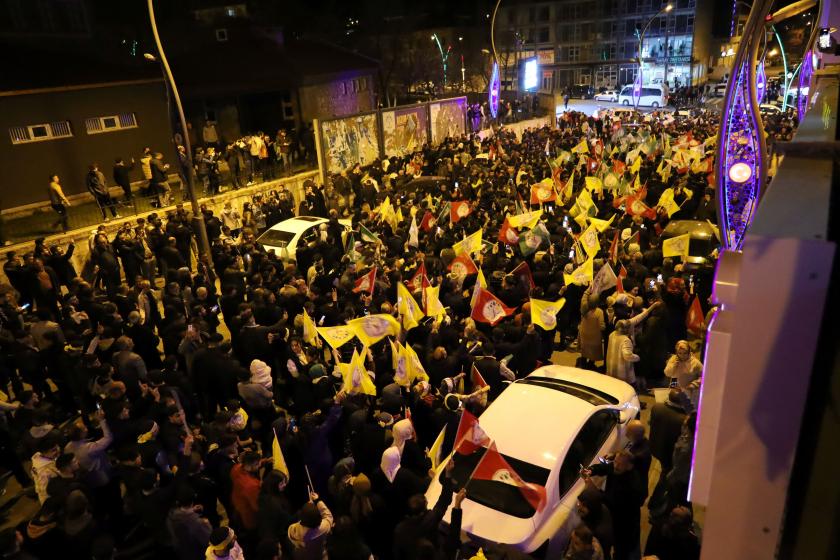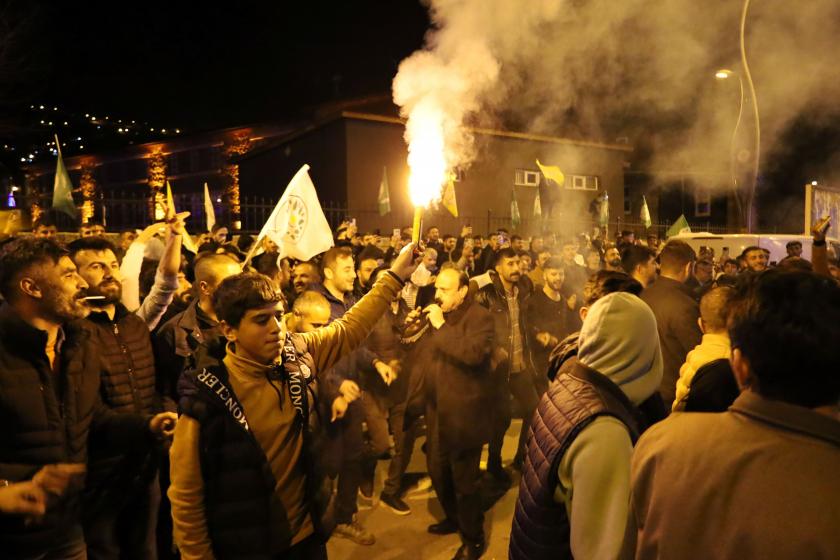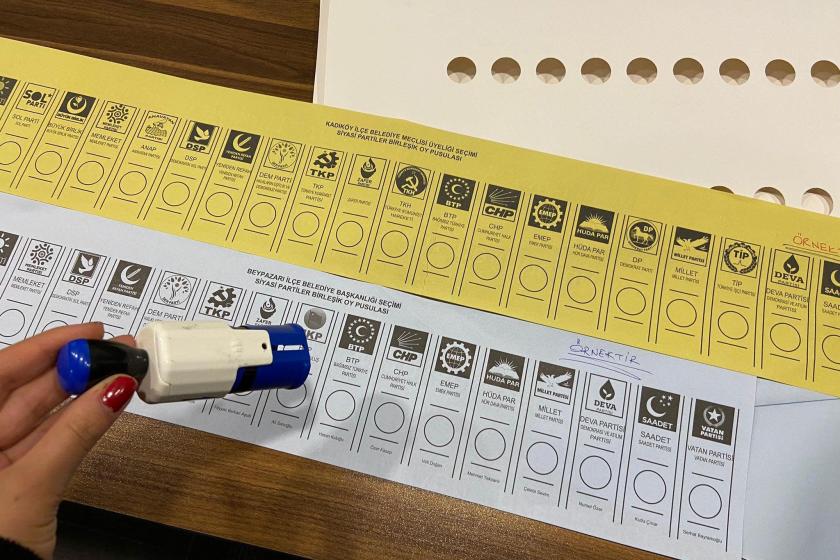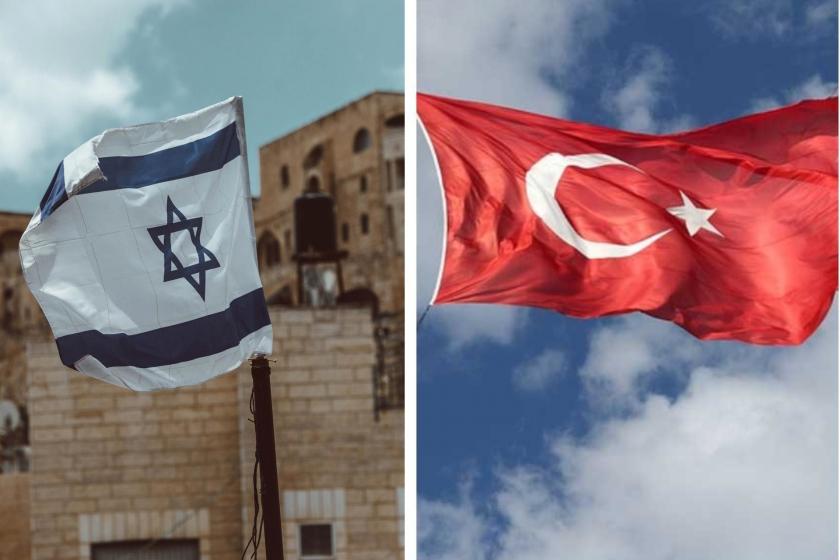The attitude the government will take against the allegation of torture in Van in eastern Turkey, where one villager was allegedly thrown from a helicopter will answer the question whether this event will be another case of Yeşilyurt.
It was 1989, the year when the conflict, which Doğan Güreş, one of the Chief of General Staff of the period, defined as "low-intensity conflict" started to escalate [in the Kurdish majority south eastern Turkey]. Yeşilyurt village of Cizre [a province of Mardin, a city in that area] was surrounded by gendarmerie, commando and special forces. The villagers were laid on the ground, houses were searched, but no "criminal element" was found. The villagers were gathered and subjected to threats such as "You feed the PKK, you are enemies, we will burn this village." But it went further and human excreta was collected from the area and fed to the villagers one by one.
This incident was revealed when Celal Başlangıç, a reporter for the Cumhuriyet newspaper at the time, had interviews with the villagers. The torture case in Yeşilyurt is a very dark period in the country; it was the harbinger of the "special war" of the 1990s, when village burnings, extrajudicial killings and unsolved murders took place.
For the past few days, a limited number of media outlets, including Evrensel, have reported on the terrible torture of two villagers in the Çatak province of Van [a city in eastern Turkey]. In addition to pro-government media outlets, some nationalist media outlets that favour repressive policies in the Kurdish issue ignore this news. The ruling bloc, which has so far had ostensible investigations against those who carried out these practices when such torture incidents occurred, have kept silence.
For those who do not know, let's briefly summarize what happened: 3 security guards lost their lives in the clash in Çatak countryside as part of the Yıldırım-10 Norduz military operation launched in Van on September 8. On September 11, the soldiers who carried out an operation detained Servet Turgut (55), who was working in his field in Sürik hamlet, and then gathered the villagers and detained Osman Şiban (50).
Relatives heard about Şiban and Turgut, who were detained, two days later. They learnt that the two villagers were in intensive care at the Van Education and Research Hospital. "These people were thrown from helicopters," says the person who brought the villagers to the hospital. The hospital report also states that Şiban was brought to the emergency room due to "falling from a helicopter" and Turgut "falling from a height". His family says that Osman Şiban suffered from temporary memory loss as a result of his severe trauma. Turgut, who had many fractures continues to be in a critical state.
Peoples' Democratic Party (HDP) Deputy Tayip Temel and Deputy Chair of DEVA Party Mustafa Yeneroğlu submitted parliamentary questions to Minister of Internal Affairs Suleyman Soylu and the Minister of National Defense Hulusi Akar about the incident. HDP Group Deputy Chairpersons Meral Danış Beştaş and Saruhan Oluç submitted a research proposal to the National Assembly Presidency and demanded the establishment of an investigation commission to examine the event.
However, there is no response from the government front regarding the allegations of such a serious case of torture. In the statement made by the Governorship of Van regarding the allegation, it was stated that "a terrorist was neutralized" in the ongoing operation in the rural area of Çatak. It went on to say that “It was observed that the person fell and was injured in the rocky area while he was trying to escape by not obeying the 'stop' warning, and despite showing resistance, he was caught and duly kept under protection. O.Ş. who is investigated to be aiding terrorist organisation members in the region showed some resistance but he was duly taken under protection.”
If only the Governorship had given more information about this interesting method of containment, we could learn how the detainees found themselves in the hospital intensive care unit! The Governor's Office's claim for some reason that Servet Turgut “fell from a rock” reminds us of the statement “fell from the wall” made for the Evrensel journalist Metin Göktepe who was tortured to death [back in 1996].
Contrary to the claim of the governor's office, the villagers also say that there is no rocky area in question, as the villagers in the region know that not obeying the "stop" warning means death, so they do not run away.
What a government that has any concern about democracy and human rights needs to do is take immediate steps to investigate these claims. Since the Governorship says that these allegations are not true -although there are serious findings showing the accuracy of these allegations- then the commission to be established will reveal this anyway. However, opposing the establishment of such a commission means that the government stands and will stand behind these tortures, which in this case means an invite to the application of such tortures from now on.
On the other hand, the fact that the villagers, who had to migrate to the southern city of Mersin because their villages were burnt down in 1988 and had returned to their villages for the season to do animal farming, were subjected to a treatment similar to that in 1989, shows that the policies implemented in the name of the solution of the Kurdish question returned to the beginning again after more than 30 years. As a result, the attitude the government will take against the allegation of torture in Çatak will answer the question whether this event will be another case of Yeşilyurt.



